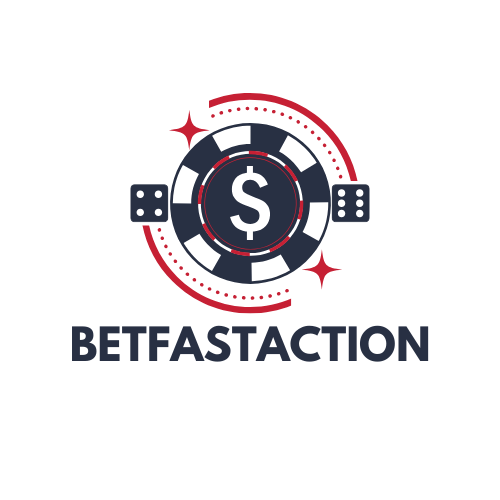In the wild world of sports betting, Underdog Fantasy has emerged as a fan favorite, offering a fresh twist on traditional fantasy leagues. But before diving headfirst into the excitement, one crucial question looms: where is Underdog legal? It’s like asking where you can find the best taco truck—timing and location are everything.
Where Is Underdog Legal
Underdog Fantasy operates as a dynamic platform for sports betting, focusing on fantasy leagues. This platform specializes in daily and season-long fantasy contests across multiple sports. Users participate in draft-style formats, allowing them to create unique rosters from available players. Players can gain an edge through innovative gameplay features like pick’ems and over/under challenges.
Regulations surrounding Underdog Fantasy vary by jurisdiction. In states where the platform is legal, users enjoy a well-regulated betting environment. The legality often hinges on state laws that categorize fantasy sports and online gambling distinctly. Several states permit fantasy sports without treating them as gambling, creating opportunities for platforms like Underdog.
Market growth in fantasy sports has fueled its popularity. Participants appreciate the mix of skill and chance that makes fantasy leagues engaging. Underdog Fantasy separates itself through its user-friendly interface and community-focused features. Players interact through social elements, enhancing the overall experience.
Information regarding state-specific legalities can help users navigate compliance. Legal states currently include New Jersey, Virginia, and Arizona, among others. Users should always verify local laws before participating to ensure adherence to regulations. Resources like the Underdog Fantasy website provide up-to-date information on legal jurisdictions.
Growing interest in fantasy sports continues to shape the industry landscape. Companies like Underdog adapt to changes in legal frameworks, aligning with user demands. Potential users should stay informed about regulations to maximize their experience. By understanding where Underdog is legal, players can fully engage with the platform’s offerings.
Legal Status of Underdog in the U.S.

The legality of Underdog Fantasy varies across the United States. Users must understand the local regulations to engage with the platform responsibly.
State-by-State Analysis
New Jersey, Virginia, and Arizona allow participation in Underdog Fantasy. California, Texas, and Florida do not have similar provisions, classifying fantasy sports differently. Louisiana and Nevada impose strict regulations, limiting access. States like Pennsylvania regulate fantasy sports under gaming laws, creating a unique environment for users. Users should consult state-specific laws due to differing interpretations of fantasy sports.
Key Legal Considerations
Fantasy sports can be considered games of skill in many jurisdictions. States often classify these games as legal under specific laws, differentiating them from traditional gambling. Users must ensure compliance with registration and age requirements to participate legally. Engaging in fantasy sports should involve understanding local tax implications, as winnings may be taxable. Users frequently overlook the need for proper documentation of their activities for tax purposes.
Comparison with Other Betting Platforms
Underdog Fantasy stands out among various platforms, particularly with its unique approach to fantasy sports contests. Traditional betting sites often focus primarily on sports wagering, while Underdog combines drafting mechanics with innovative gameplay options. This aspect attracts users seeking a different type of engagement in the daily and season-long fantasy sports landscape.
Competitors like DraftKings and FanDuel offer similar fantasy sports experiences, yet they typically feature a broader range of betting options. On these platforms, users can bet on a variety of sports events through traditional lines and prop bets. In contrast, Underdog prioritizes a simpler interface with streamlined pick’ems and over/under challenges, appealing to newcomers and experienced players alike.
Legal regulations impact how these platforms operate. Many jurisdictions recognize traditional sports betting as gambling, leading to stricter licensing requirements for operators. Underdog, however, capitalizes on states allowing fantasy sports to be treated as games of skill. This differentiation helps users navigate legal landscapes more comfortably while participating in the platform’s offerings.
User experience remains critical in this domain. DraftKings and FanDuel have complex odds and betting structures that can overwhelm some participants. Underdog’s user-friendly design promises a more accessible journey, encouraging casual fans to engage without feeling intimidated.
Compliance with legal requirements is essential across all platforms. Users should confirm registration and age limitations before playing. In addition, navigating state-specific laws ensures participants are aware of any carbon taxes that might apply to their winnings. Staying updated on these legal intricacies enhances the overall betting experience with Underdog and similar platforms.
Implications for Users
Understanding the implications of using Underdog Fantasy begins with recognizing state-specific laws. Various locations approach fantasy sports differently, impacting user access and engagement. Registration and age requirements must be observed, especially in jurisdictions like New Jersey, Virginia, and Arizona, where participation is allowed.
Tax implications also arise; winnings may be subject to taxation, depending on local laws. Users should document their activities meticulously to comply with these regulations. In some states, fantasy sports are classified as games of skill, allowing a more favorable legal environment. This distinction helps underscore why staying informed about legal interpretations is vital for users.
Platforms like Underdog Fantasy offer a user-friendly design, appealing to casual fans who might feel overwhelmed by competitors’ complexities. DraftKings and FanDuel provide broader betting options but often confuse users with intricate odds and structures. Engaging with Underdog often feels more straightforward, enhancing the overall experience.
Legal regulations significantly shape how these platforms function. Users need to confirm registration and age limits before participating. They should remain updated on the evolving legal landscape, as changes can directly affect gameplay options.
Accessibility remains a critical factor for potential users. While some states impose strict regulations, others create a welcoming atmosphere for fantasy sports enthusiasts. Staying compliant ensures an enjoyable experience with Underdog Fantasy while navigating the intricacies of the law.
Conclusion
Navigating the legal landscape of Underdog Fantasy requires awareness of state-specific regulations. While some states embrace fantasy sports as games of skill, others impose restrictions that can limit participation. Users must stay informed about their local laws to ensure compliance and maximize their experience.
Understanding registration and age requirements is essential for those looking to engage with the platform. Additionally, being mindful of tax implications on winnings can help users avoid surprises down the line. As the fantasy sports industry evolves, keeping up with legal changes will enhance the enjoyment of Underdog Fantasy and its unique offerings.





